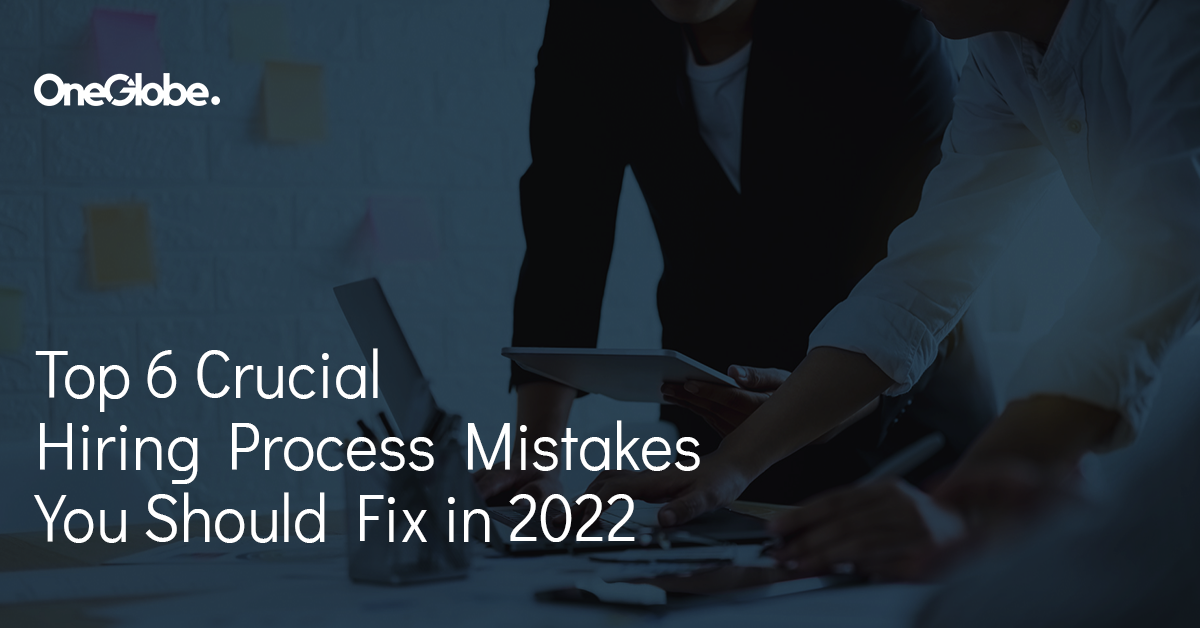
Managing your hiring process effectively can be challenging no matter how experienced you are at candidate selection and onboarding. As Millennials and Gen Z start filling the ranks of businesses worldwide, it’s time to rethink your approach to writing job listings, interviewing candidates, and hiring the right people.
According to recent reports, almost 50% of job seekers declined a job offer because of a poor recruitment experience. Job seekers are prepared to sacrifice up to 12% of their salaries for better flexibility (remote work) and training opportunities (L&D). Your hiring process will need a rework if you’re to find and retain top talent through Jobs OneGlobe in 2022. Here’s how you can make the most out of your listings and help your company thrive as a result.
1. Rushing to Fill your Job Vacancies
There’s no denying the fact that you’d like to have your candidates hired and onboarded as soon as possible so they can start working as full-time employees. However, rushing through your hiring process to “get it over with” is a bad mistake, one which can cost you precious time and resources.
Despite the statistical finding that 42% of businesses invest in tools that can speed up hiring, you should still rely on systematic hiring through job boards, just as 39% of employers already do. Start by assessing your job vacancies and creating a profile of the type of employee you’d like to hire. Create and publish your job listings on Jobs OneGlobe and give it some time for the right candidate to approach you. Every hiring process is a slow burn, and you should be mindful of who you hire so that they fit into your existing business culture as seamlessly as possible.
“People are not your most important asset. The right people are.” – Jim Collins
2. Setting Too High Expectations
You’ll want to hire the best possible candidates for your job vacancies. To do that, you’ll need to write objective and informative job listings which will accurately reflect the positions you’re trying to fill. However, many employers fall into the trap of asking too much of their hires despite not being able to pay them for the required skillsets.
Instead of asking for 5+ years of proven experience in the industry, why not accentuate soft skills, certification, and referrals? Or, instead of looking for an all-in-one employee who will fill two or three different job positions, why not separate them into two or three separate positions and look for employees to fill each one? This may be difficult for startups and small businesses on a budget, but doing the opposite is not only unethical but also unrealistic. You’ll attract inadequate candidates to your listings and make the hiring process more complicated than it could be.

3. Overreliance on the Interview Results
The interview process you go through is an integral part of the vetting and shortlisting of candidates. However, job interviews are in no way indicative of a candidate’s fitness for your job vacancy. Instead, you should consider various factors when deciding whether to hire a candidate or not.
- Was the candidate nervous during their job interview? Why?
- Does the candidate’s CV match what they said during the interview?
- Did the candidate give off any red flags you should consider?
- Was the candidate on time and were they presentable?
- Was the candidate’s cover letter professionally written?
The job interview results should be an important part of your hiring process but it’s still only a part of it. Don’t put too much emphasis on the fact that a candidate was nervous, anxious, or couldn’t keep eye contact for long. Your candidate may be an introvert or they just might be shy – they might also be first-time job seekers. Consider every job candidate from different angles until you conclude whether or not to hire them.
“Recruiting should be viewed as a business partner, someone who is critical to the success of the business.” – Mathew Caldwell
4. Not Checking the Candidates’ Social Media
A candidate’s social media handles will tell you a lot about who you’re about to hire. You should always go out of your way to check each candidate’s social media, whether they provide you with Facebook, Instagram, Twitter, or other links. You should also search for their names on social media regardless of whether and what they include in their CVs.
This will make your hiring process more thorough and you’ll avoid hiring candidates who are intolerant or otherwise unfit for your company’s culture. You don’t want to risk your business’s reputation and the well-being of your existing staff by omitting new hires’ social media from your hiring process.
5. Ignoring International Candidates in Favor of Local Hires
Whether your company operates in IT, marketing, sales, logistics, or hospitality, you should always keep an open mind regarding hiring international candidates. People from abroad can add to your staff’s diversity and offer unique outlooks on the projects you’re working on.
Disregarding international candidates outright just because they’re not locals isn’t a good idea. In 2022, you want to make your company as diverse and international as possible to promote diversity and create a more varied staff with the right mix of skillsets. Strike a balance between local and international talent in your hiring process and you’re more likely to find the types of candidates your business needs to thrive moving forward.
6. Leaving Talented Candidates Waiting for a Response
Finally, it’s important to understand that your job candidates will likely apply for several different job listings simultaneously. Job seekers want to get employed quickly just as you want to find the right people as fast as possible. But, keeping talented job seekers in the dark and having them wait for weeks until you respond to them is a mistake.
If you’re interested in hiring certain people, let them know about it. Your hiring process needs to get a move on when you find the candidates that fit the bill, so to speak. If you have your eyes set on certain candidates and are seriously considering hiring them, proceed with the decision sooner rather than later. Otherwise, they might get hired by someone else and be unwilling to work for you just because you waited too long to get back to them in your hiring process.
“Sourcing and finding people is the most important. You can’t recruit, message, or network with someone you haven’t found.” – Glen Cathey
Managing your Hiring Process with Jobs OneGlobe
As you can see, there’s a lot that can go wrong when you start your hiring process without a clear goal in mind. Published reports indicate that 89% of passive candidates evaluate every brand they apply for carefully before submitting their CVs. To 76% of job seekers, company diversity matters very much, meaning that you need to start reevaluating your existing office culture to better understand who you should target as a hire.
Keep these mistakes in mind when you create your job listings on Jobs OneGlobe and once your hiring process is underway. By eliminating them, you’ll provide candidates with a smoother and more meaningful interviewing experience which will be mutually enjoyable and rewarding. Don’t rush things, evaluate each candidate thoroughly, and make objective, calculated hiring choices – that’s how you’ll arrive at a staff which will simply click into place.




Share
Facebook
Twitter
LinkedIn
Telegram
Tumblr
WhatsApp
VK
Mail